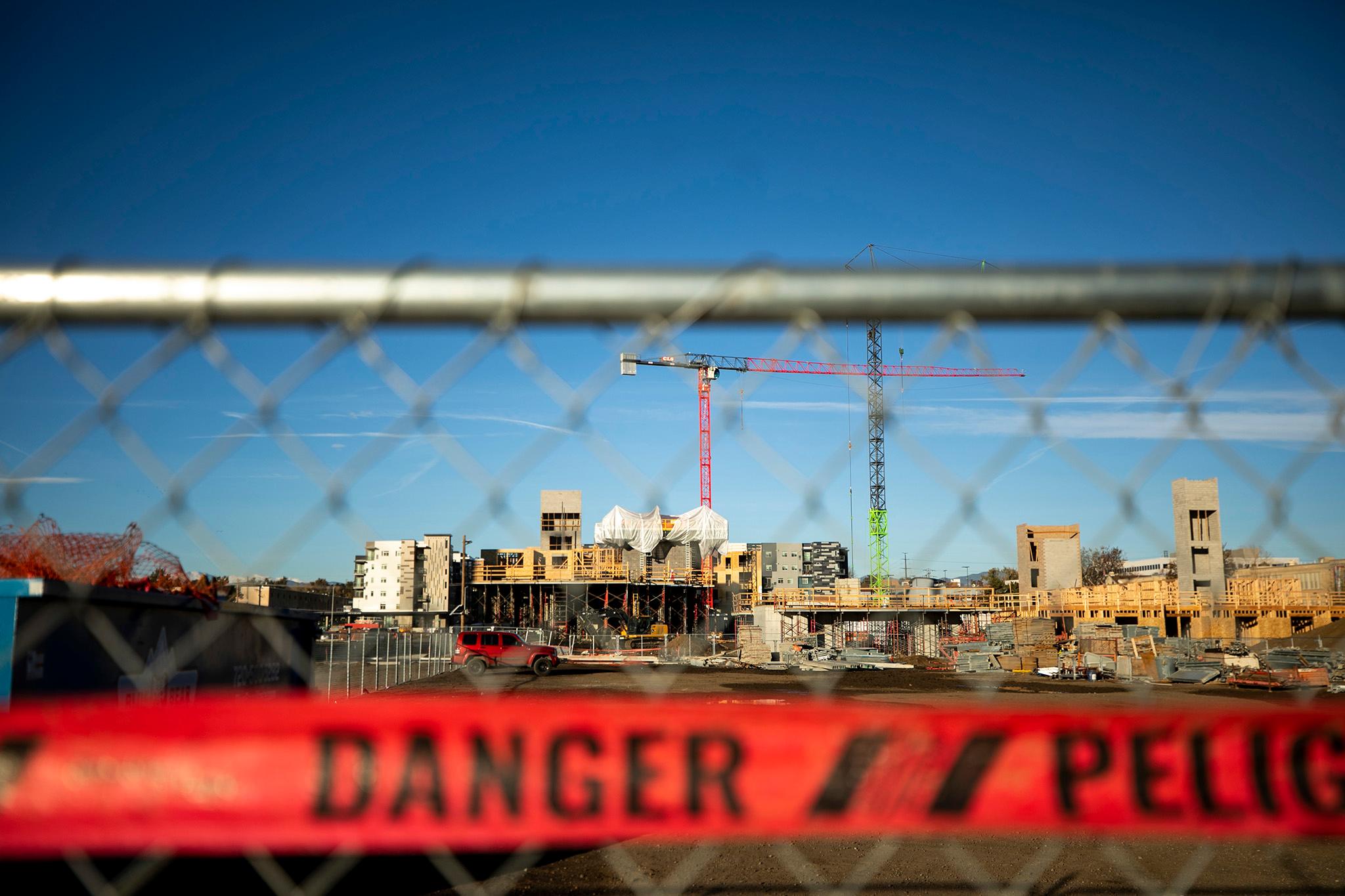Denver Auditor Timothy O'Brien's team released a scathing 62-page report detailing much of what's been going wrong with Community Planning and Development's residential permitting process in recent years.
The city's planning department has acknowledged being understaffed and backlogged with projects, as developers and construction companies have blamed the agency for slowdowns and excessive avoidable costs. But the department has also been scrambling for fixes and has had some success speeding up permitting.
"Since reaching a peak in the fall of 2022, review times for all permit types have been steadily declining," wrote Community Planning and Development spokesperson Alexandra Foster, in a statement. "Today, residential plan review times (for single-family and duplex projects) are averaging 2-4 weeks, compared with 12-15 weeks in the fall of 2022."
The audit took place before the agency sped up its permitting times, she explained. Even so, "The audit's findings are in line with what our team had previously identified and is already working to address."
Here's what the audit found.
The audit showed errors in construction plan reviews, confusing instructions for people looking for residential permits, too little managerial oversight that slowed down the approval of new projects, and little comprehensive training that led to inconsistent performance from project reviewers and excessive costs for people and companies trying to build things in the city.
The lag and errors have not only led to a boat of gripes but the auditor's fear that the planning department's sluggish pace and bumbles have some builders considering moving forward without city approval.
"This is dangerous for the community and frustrating for homeowners," O'Brien said in a statement. "If more people start going it alone without approved construction plans, we could have a big issue."
Other developers have said they would be leaving the city altogether and build in the suburbs, where doing so is cheaper and faster.
"Eleven of 55 homeowners and construction contractors who responded to our survey expressed frustration with inconsistent review comments, with one saying the likelihood of their project getting approved depended more on the reviewer they were assigned than on the project itself," the audit stated.
To compound matters, contractors and homeowners struggled to get in touch with planning department staff, making it tough to get answers to questions and to navigate a daunting process.
Communication is also lacking between agencies involved in permit reviews, and the audit found a lack of formal processes for coordination between departments. That's created problems with timeliness and errors in reviews.
The issue of slow permitting times was a hot topic in the mayor's race, and most candidates, including now-Mayor Mike Johnston, talked about finding improvements.
In his first months in office, permitting time sped up -- but not exclusively to his credit. The department had already pledged to work on deficiencies.
The permitting time speed up is likely also a result of a slow-down in the number of new permitting applications, the audit documented.
Why a slow down in new permits?
Nationwide, developers have put the brakes on residential construction permits after the Federal Reserve raised interest rates. In Denver, developers hit the brakes harder after City Council passed its expanding housing affordability rules that make developing new projects more expensive and mandate the creation or funding of income-restricted housing.
Six months into his time at the top, Johnston has still yet to hire a permanent head of the agency, the department that will instrumental in his push to build thousands of units of income-restricted housing by the end of the year.
So what does the audit recommend?
The report encouraged the planning department to develop better data to determine whether its reaching its goals, to create a formal process to communicate with homeowners, contractors and other agencies' permit review teams, and to ensure both city staff and outside contractors receive formal training.
The department needs more managerial oversight, better instructions for how homeowners navigate permitting, and comments from reviewers that actually make sense.
Community Planning and Development agreed to most of the auditor's 20 recommendations.
The agency said it would develop and improve its training plan, create policies for monitoring permitting reviews, improve oversight of contracted staff, develop a process for website updates, improve application guidelines, rework how plan review notices are formatted to create consistency and much more.
The auditor recommended the agency appoint a contract administrator for residential reviews since members of the residential review team said they did not have one. Community Planning and Development decided not to do so, arguing doing so would be a redundancy.
"CPD does currently have a designated contractor administrator in place within our Finance and Accounting work group," the agency wrote in response to the auditor.
"Unfortunately, managers chose to disagree with three of our recommendations related to ensuring reliable data and contract monitoring to avoid errors in permit review," the auditor's office wrote in a statement. "We hope the department will act on all of our recommendations to help improve the experience of building permitting for our city's constituents in the future."











